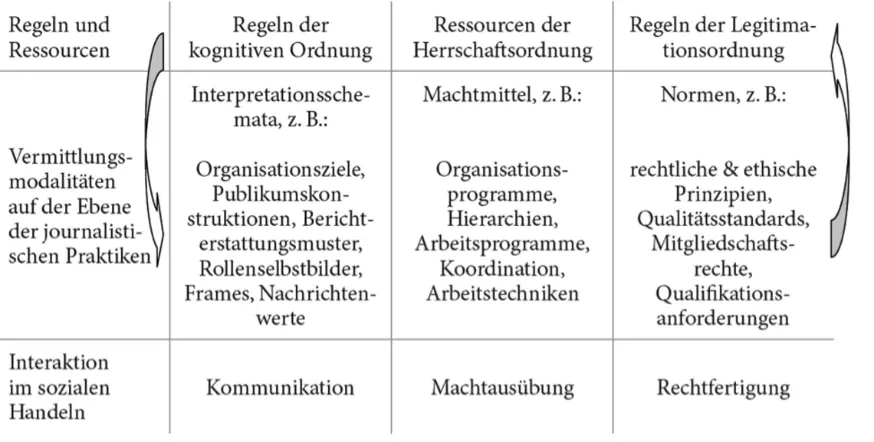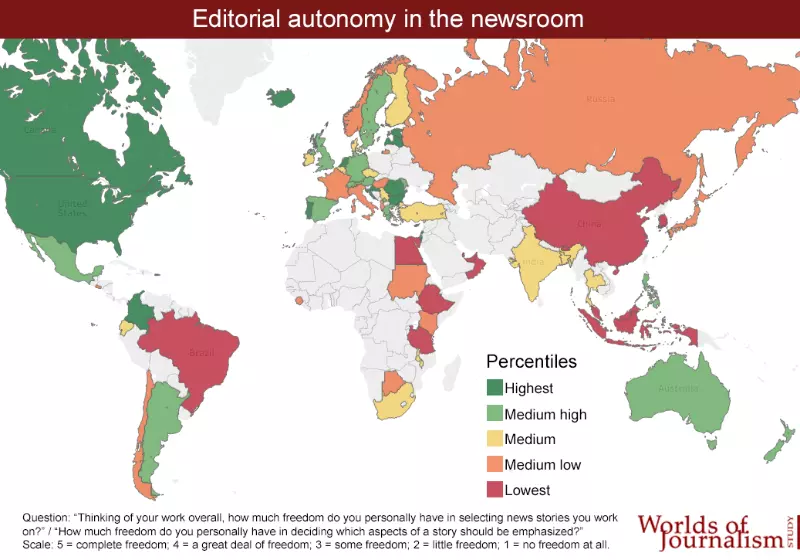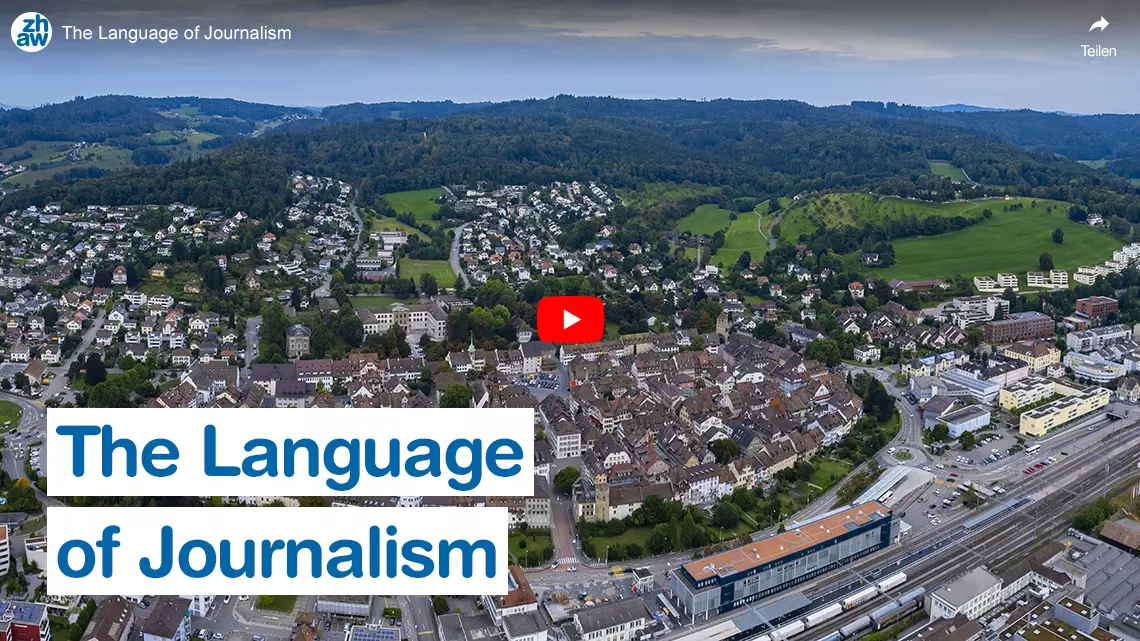Journalism Studies
In the Journalism Studies professorship, we analyse what journalism accomplishes in societal contexts and how structures that enable or limit journalist action and quality emerge. For example, we investigate what fosters journalistic innovation, how journalistic quality is ensured in media organisations and in which ways the attitudes and practices of journalists change in the course of societal change. We are transfer-oriented and transdisciplinary, and we utilise theories and methods from the social sciences and Communication Studies to gain useful insights for stakeholders in public communication.
In focus
The logic of journalism

What is normal about journalism fearing normality? And why does it nevertheless satisfy our longing for the normal? Vinzenz Wyss, a Professor of Journalism at the ZHAW, answers these questions in an article and video.
Regulatory framework for research, teaching and consulting

The discipline of journalism studies describes, analyses and assesses the structures, rules and resources found within journalistic environments as well as the social practices of journalistic work in their mutually recursive relationships. On this basis, it is possible to derive a framework for research, teaching and consulting in which journalism studies as an academic discipline sets its priorities (see figure). Within this framework, we are also able to contribute our expertise, allowing for findings to be generated or recommendations for action to be identified.
Journalism under pressure

This research project is financially supported by the Swiss National Science Foundation and investigates the risks and uncertainties that journalists face in Germany, Austria and Switzerland as well as worldwide. The aim is to better understand how journalism in the three countries adapts to and deals with various risks and uncertainties in different political, socio-economic and cultural contexts. The project continues the efforts made by the Worlds of Journalism Study to track the state of journalism in Germany, Austria and Switzerland as well as the situation of journalism worldwide.
Innovations in journalism

How do innovations in journalism influence journalistic quality and thus the public in a democratic society? In an era of “post-factuality”, “fractured societies” and “fragmented” democracies, the Innovations in Journalism project, which is funded by the Swiss National Science Foundation, investigates the impact of innovation on the quality of journalism and the role it plays in a democratic society. It also analyses the framework conditions for the emergence of journalistic innovations internationally. The project identifies, indexes and evaluates the 20 most important innovations in journalism in the five participating countries during the last decade (2011 to 2020).
Research-based teaching
Students in the BA Communication recognise journalism as an essential function in the public sphere. They learn about the general frameworks that guide journalistic action and can assess the impact that societal structures have on journalist action. In addition, they learn how journalistic services work and how they are used, and they become familiar with the central principles of media ethics. In our teaching activities, we focus on the reflective analysis and production of popular science reporting, which is considered one of the most prestigious branches of media journalism. In the MAS Communication Management and Leadership programme , we teach participants practical know-how about the inner logic of journalism, which is relevant to strategic media work within organisational communication. In the CAS Innovation in Journalism, we weigh in on current issues related to structural changes in the public sphere and address t he innovative benefits of an editorial quality assurance system.







